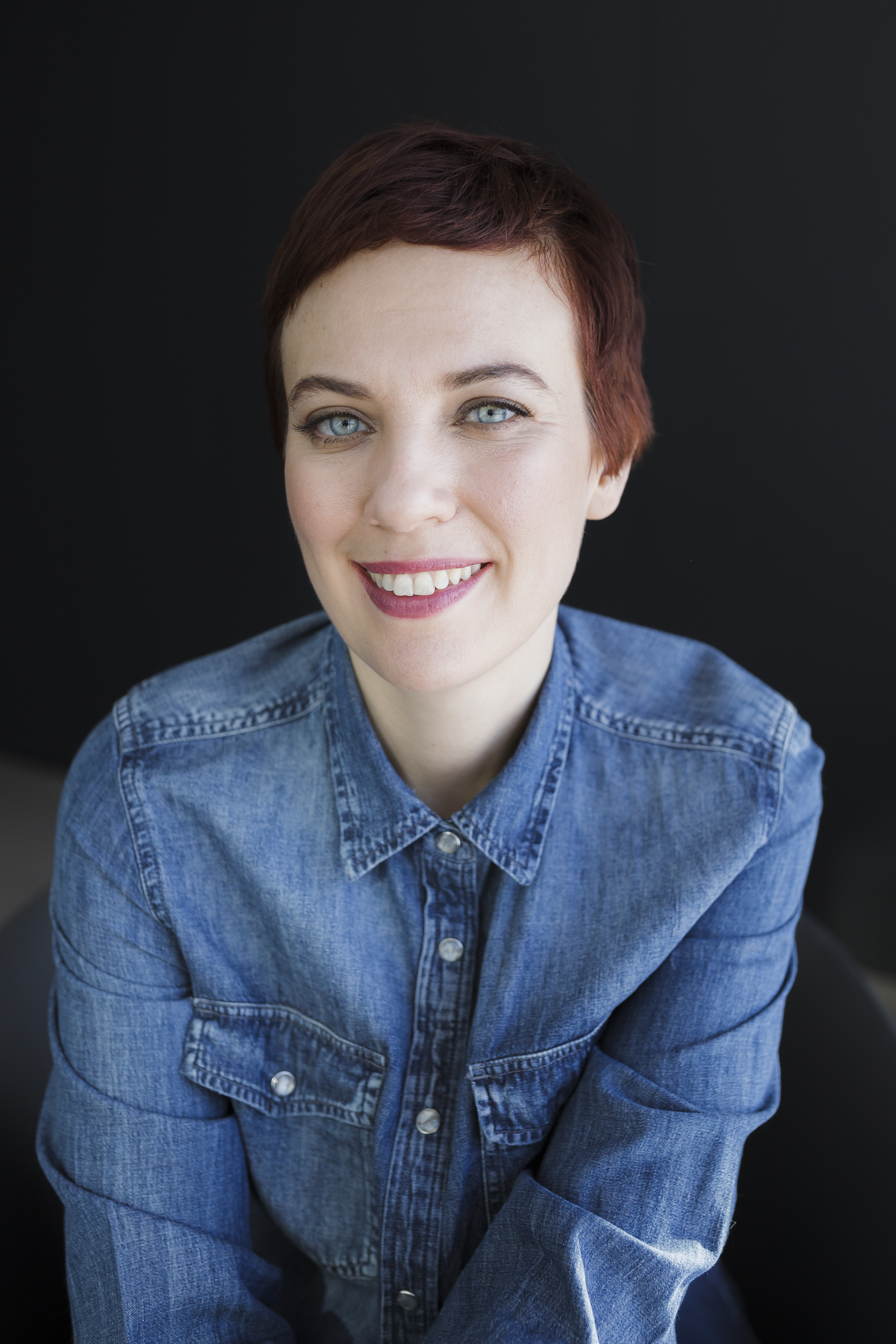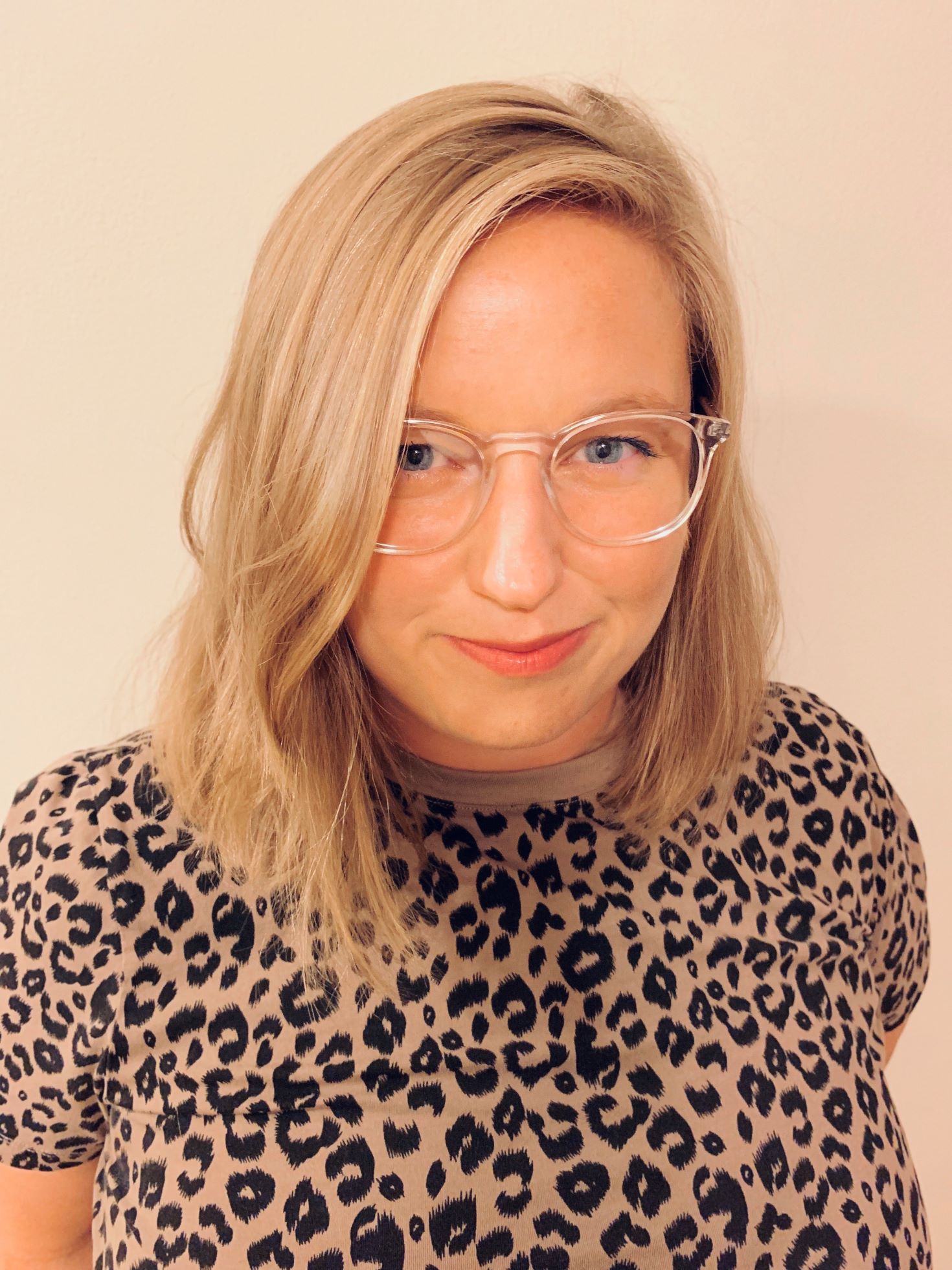About Us
84 graduates and counting
"The MFA in Writing is dedicated to mentorship, student support, and an inclusive community. Writing can be a solitary activity. In the MFA at University of Saskatchewan, you belong to a program but more than that, to a welcoming community that values compassionate rigour, innovation, and diversity. Many of our graduates, while continuing to write and publish, work in the cultural sector, as editors, and literary entrepreneurs."
---Dr. Jeanette Lynes, MFA in Writing Director
What Our MFA Graduates Are Saying
“The USask MFA in Writing graduate program’s supportive and enriching environment provided the ideal conditions for me to experiment and grow as a poet.” -Sarah Ens
“As an international graduate of the MFA program, I would encourage other students from countries and territories outside of Canada to seriously consider the University of Saskatchewan. I believe any opportunity for a writer to study a perspective or culture outside of their own is essential to the evolution of their voice and critical when creating art that is empathetic, dynamic, and inclusive.” -Gunner Ohberg
“The mentorship is the best thing about the MFA in Writing program. Aside from developing my own creative writing skills, my abilities as an editor improved a lot during the MFA due to workshops, my mentorship, and being an editor of River Volta Review of Books. Indirectly this experience has led to other editing opportunities post-MFA.” - Brandon Fick
“The mentorship I received through the MFA in Writing program was of the highest quality and a highlight of the program. Dr. Jeanette Lynes listened to what I wanted to achieve in my writing and matched me with an award-winning author who would help me realize my goals. I couldn’t have asked for a better experience and writing greatly improved as a result.” -Kate O'Gorman
“The MFA in Writing is a fantastic program and I encourage anyone who is serious about writing to apply. Today I am working on my first novel and because of the MFA experience, I feel as prepared as possible for the challenge.” - Karen Wood
Recent News
About the MFA in Writing
The goal of the Masters of Fine Arts (MFA) in Writing program is the training of a writer in the professional and creative aspects of the craft. The MFA in Writing at the University of Saskatchewan balances the intensive study and practice of writing in several genres with an interdisciplinary flexibility. To the study of poetry, fiction and playwriting, the program adds a variety of non-fiction genres, allowing students to merge a wide variety of intellectual interests with their writing ambitions.
Books by MFA in Writing Students
Our MFA in Writing students maintain a robust publishing program, both during and after their MFA studies. Their work appears regularly in literary magazines and journals. Listed below are some of their book publications:
- Tonia Laird, Seventhblade (ECW Press, 2025)
- Sarah Ens, The World is Mostly Sky (Turnstone Press, Forthcoming)
- Meaghan Hackinen, South Away: The Pacific Coast on Two Wheels (NeWest Press, 2019)
- dee Hobsbawn-Smith, Bread & Water (Forthcoming)
- dee Hobsbawn-Smith, What Can't Be Undone: Stories (Thistledown Press, 2015)
- dee Hobsbawn-Smith, Wildness Rushing In, (Hagios Press, 2014)
- dee Hobsbawn-Smith, Foodshed: An Edible Alberta Alphabet (TouchWood, 2012)
- Katherine Lawrence, Stay (Coteau Books, 2017)
- Katherine Lawrence, Never Mind (Turnstone Books, 2016)
- Katherine Lawrence, Lying to Our Mothers (Coteau Books, 2006)
- Katherine Lawrence, Ring Finger, Left Hand (Coteau Books, 2001)
- Shannon McConnell, The Burden of Gravity (Caitlin Press, Forthcoming)
- Allison McFarland, Disappearing in Reverse (University of Calgary Press, Forthcoming)
- Mika Lafond, nipê wânîn: my way back (Thistledown Press, 2017)
- Taidgh Lynch, First Lift Here and Other Poems (JackPine Press, 2019)
- Patrick O'Reilly, A Collapsible Newfoundland (Frog Hollow Press, 2020)
Program Information
The MFA in Writing is a two-year program. Students will normally convocate in the fall at the end of the two years. This means that the students will normally defend their theses at the end of August and/or the beginning of September. In exceptional circumstances, a student may defend his or her thesis in June. This is a Full-Time program. Students should be prepared to devote the bulk of their time to it. The writing workshops are on-site only and do not have an on-line component. In both years students take a variety of courses; in the second, students also complete a thesis. The thesis can be a novel, a work of creative non-fiction, a play, a collection of poems or short stories.
The First Year
In the first year, all students in this program are to take two 3cu Workshop courses (fiction and non-fiction), in which students are required to present work in two genres.
- WRIT 800.3 - The Craft of Writing Fiction is to be taken in fall term.
- WRIT 802.3 - Non-Fiction Workshop is to be taken in winter term.
- Elective - As well, each student will take their 3 cu elective as an 800-level or approved undergraduate 300 or 400 level course in another subject. The relevance of this course to the student’s writing must be demonstrated, and prerequisite requirements must be satisfied or waived.
Each student will also take part in the program’s WRIT 990 colloquium (the Profession of Writing), and in GPS 960 (Introduction to Ethics and Integrity) and also in WRIT 994 (the thesis).
During the first year, each student will be assigned an approved faculty supervisor. An established writer from the community with professional affiliate status in the College of Graduate and Postdoctoral Studies, will also be assigned as your writing mentor starting April 1st of your first year and ending September 30th of your second year.
The Second Year
In the second year, upon successful completion of year one’s requirements, all students in the program will be required to take two more Workshop courses.
- WRIT 801.3 - Poetry Workshop is to be taken in fall term.
- WRIT 803.3 - Capstone Workshop Extended Forms is to be taken in winter term.
All students will continue to participate in WRIT 990 and WRIT 994. With regular supervision, including supervision throughout the summer, students will propose and carry out the thesis. The second year will be completed with the submission and successful defense of the thesis.
Mentorships
The six-month mentorship is a key component of the MFA in Writing. Students must achieve a minimum mark of 80% to be eligible for a mentor. It affords students the opportunity to work with published authors from the Saskatchewan writing community. The mentorship begins in the spring after the student’s first year and continues until September of that year. Mentors will respond to regular submissions of student work via in-person meetings, Skype, email, regular post or some combination of the above. The Coordinator will assign each student a mentor based on a ‘fit’ between the mentor’s work and the student’s proposed writing project. The student is free to suggest a mentor pending the Coordinator’s approval. The assignment of mentors will depend, of course, on the availability of the mentor. The creative project on which the mentor and student work together will essentially constitute a portion of the student’s MFA thesis.
Courses
WRIT 800.3 - The Craft of Writing Fiction
This course focuses on how to write dynamic and engaging fiction. The course offers compositional strategies for writing short stories and novels. Writ 800.3 is an intensive workshop consisting of peer critiques, a craft seminar, and discussion of assigned readings. Students will meet weekly and will be required, every week, to produce writing of their own and submit it for analysis by the rest of the class and the instructor.
WRIT 801.3 – Poetry Workshop
Students in this course will meet weekly for a three-hour seminar, in which they will examine the key theories and issues in the writing of poetry. A professional writer should have experience in more than one genre: exploring the specific demands and opportunities of verse is fundamental to this program. The students will be required, every week, to produce writing of their own – commentary, then poems – and submit it for discussion by the rest of the class and the instructor.
WRIT 802.3 – Nonfiction Workshop
Students in this course will meet weekly for a three-hour seminar, in which they will examine some leading theories and methods in the making of nonfiction that could include biography, history, and investigative journalism. This course will develop the student’s proficiency in writing nonfiction for a general audience. The students will be required, every week, to produce writing and submit it for discussion by the rest of the class and the instructor.
WRIT 803.3 – Extended Forms
This capstone workshop focuses on the conceptualizing and creation of a book-length manuscript of prose (fiction, creative non-fiction) or poetry. It is also meant to sharpen editing skills and the ability to construct a theoretical basis for a writing project as well as situating that writing project within its broader literary context(s). The theory and aesthetic informing the writing project will be articulated in an Artist’s Statement. Each student will also be required to present a graduating craft talk, based on their writing project and open to other MFA students in the program. The student presenting the craft talk will be, in essence, teaching craft, using his or her own writing and reading as a basis. Extended Forms is the final workshop in the MFA.
WRIT 990.0 – The Profession of Writing
Detailed, practical attention to the professional aspects of authorship provides a crucial dimension to training to undertake a career in writing. With completion of this course, students will have a grasp of the business of writing. Students in each year of the program are required to attend the seminars comprising this course. These seminars take place approximately once a month; they provide opportunities for students to consider and discuss various public and practical aspects of their work. The seminars, whose topics may include Submitting Work for Publication, The Role of the Editor, Intellectual Property and Copyright and Writing on Contract, will be led by experts from around and beyond the University.
WRIT 994.0 – Thesis
The Major Work culminates the MFA in Writing. The objective is a substantial, original piece of writing: a novel, a collection of short stories, a sequence of poems, a play, or nonfiction book or series of nonfiction work. The Major Work is to be completed in the second year of the program. At the end of the second year, the student will submit the completed work, meet with an examining committee, and defend the work submitted.
Thesis Length Requirement:
Long form prose thesis (ie novel, memoir): to a maximum of 200 double-spaced pages
Short story thesis: to a maximum of 150 double-spaced pages
Poetry thesis: 40-60 pages
Artist Statement: 15-20 pages
Note: In a special case situation where a student requires more than two years to complete the MFA in Writing program, continuous registration in WRIT 990 and WRIT 994 will be required on completion of the MFA.
How to Apply
Entry into the MFA in Writing requires a four-year Bachelor’s degree (or equivalent), with a minimum of 70% in the last two years, and a strong portfolio of writing. In exceptional cases, applicants without the degree may enter the program on a probationary basis: equivalency will be judged on previous participation in reputable workshops such as those offered by the Banff School of Fine Arts, the Sage Hill Writing Experience, and the Saskatchewan Writers’ Guild; on relevant work experience; and on substantial publication.
Minimum Admission Requirements to the College of Graduate Studies and Research for Masters Degree, please click here.
Applications should be submitted by January 31st each year to be considered for admission in the following September. Late applications will be considered only under exceptional circumstances. The MFA in Writing Program has only one intake a year, in September.
Application Deadline: January 31st
Application Checklist
All applications for admission must include:
- online application for admission: http://grad.usask.ca/programs/writing.php
- a non-refundable application fee of $125 for domestic students and $145 for international students (in Canadian or equivalent US funds), which is payable online through the online application process
- three letters of reference (the referees whose email addresses you provide in your online application will automatically be directed to an online form to submit). Please ask your references to assess your writing ability and work ethic, and your ability to work within a collaborative group workshop setting
- statement of intent, indicating the genre(s) of literature in which you wish to specialize. Applicants should be as detailed as possible with respect to the writing project they aim to undertake during their study (to be uploaded on your online application)
- CV (resume) (to be uploaded on your online application)
- portfolio of 20 pages of writing
- This portfolio will be judged for evidence that the candidate has achieved a preliminary standard of originality, craft, style and literary sophistication. This can be submitted electronically in PDF format. The writing portfolio will constitute a substantial portion of the applicant's qualification for admission. (to be uploaded on your online application)
- This portfolio will be judged for evidence that the candidate has achieved a preliminary standard of originality, craft, style and literary sophistication. This can be submitted electronically in PDF format. The writing portfolio will constitute a substantial portion of the applicant's qualification for admission. (to be uploaded on your online application)
- transcripts from all post secondary institutions attended (to be uploaded on your online application)
- test results of proof of English language proficiency from applicants from non-English speaking countries (eg. TOEFL, IELTS). Click here for details.
MFA Student Resources
SAMPLE ARTIST'S STATEMENT
A good example of an artist's statement is found here (PDF file will open in new window).
Used with permission of Elise Godfrey, 2014.
SAMPLE THESIS FRONT MATTER
A good example of the front matter of a thesis can be found here (PDF file will open in new window).
Used with permission from Leah MacLean-Evans.
Creative Writing Faculty
Faculty from the Humanities and Fine Arts departments will participate in the MFA in Writing as instructors and supervisors.
Program Director & Faculty Jeanette Lynes is novelist, poet, and essayist. Her fourth novel, The Apothecary’s Garden (HarperCollins Canada, 2022) was on the National Bestsellers list for seven weeks, and was a finalist for a High Plains Book Award and two Saskatchewan Book Awards. Her third novel, The Small things that End the World received the fiction award at the 2019 Saskatchewan Book Awards. Jeanette’s first novel, The Factory Voice, was longlisted for the Giller Prize and a ReLit Award. Bedlam Cowslip: The John Clare Poems, Jeanette’s seventh book of poetry, received the 2016 Saskatchewan Arts Board Poetry Award. Her critical writing has appeared in Teaching Creative Writing in Canada (Ed. Daryll Whetter, Routledge, 2025) and two recent issues of The University of Toronto Quarterly’s “Letters in Canada.” Jeanette’s forthcoming books are The Paper Birds: A Novel (HarperCollins Canada, 2025), Apron Apocalypse: Lyric Essays (Thistledown Press, 2026), and Jumpstart: Research and Creative Writing (working title only, University of Regina Press, 2027). In addition to directing the MFA in Writing since 2011, Jeanette has been a Writer in Residence at Saskatoon Public Library and faculty at Sage Hill Writing |
Faculty
Sheri Benning is the author of three books of poetry, most recently The Season’s Vagrant Light: New and Selected Poems published by internationally esteemed poetry publisher, Carcanet Press (Manchester UK). Her previous two collections, Thin Moon Psalm (Brick Books) and Earth After Rain (Thistledown Press) each won two Saskatchewan Book Awards. Thin Moon Psalm was also nominated for the ReLit Poetry Prize and won the Alfred G. Bailey manuscript award. Her poems, essays and short stories have appeared in Canadian, British, Irish and Italian anthologies and literary magazines. She’s currently working on a novel, excerpts of which have been shortlisted for the CBC short story prize, received honourable mention in the National Magazine Awards, and have been published or are forthcoming in Canadian and Scottish journals. In support of the novel she’s won grants from the Canada Council for the Arts and the Saskatchewan Arts Board. An early draft received a John V. Hicks Manuscript Award. Benning completed her PhD at the University of Glasgow. Her research interests include the intersection of contemporary poetry and poetics with ecocriticism and environmental philosophy, as well as literary nonfiction in the Anthropocene. |
|
Josiah Nelson holds an MFA from the University of Saskatchewan, where he teaches creative writing. His work has appeared in Contemporary Verse 2, Grain, Hunger Mountain, Queen's Quarterly, QWERTY, The Rumpus, Sonora Review, and South Dakota Review. He lives in Saskatoon. |
|
Meredith Hambrock’s debut novel Other People’s Secretswas called “audacious” and “fabulous” by the New York Times. She has been a finalist for the CBC Short Story Prize and worked extensively in television, most recently in the writers’ room for the Canadian Screen Award–winning sitcom Corner Gas Animated. Her second novel, She's a Lamb! arrives in spring 2025 from ECW Press. She holds an MFA in Creative Writing from the University of British Columbia and lives in Saskatoon. |
Yuri Herrera-Gutierrez
David Martin
MFA Variety Show
The MFA in Writing Variety Show is a collaborative, creative space for current students, alumni, faculty, and mentors of the program to share writing they love with the wider community.
The idea for this project was born in the spring of 2020, during a time of unexpected isolation and uncertainty. We hope that the MFA in Writing Variety Show celebrates our community of writers, boosts morale, and showcases a collection of imaginative work for us to enjoy together.
The River Volta Series
River Volta Review of Books
The River Volta Review of Books (RVRB) is edited and published by the University of Saskatchewan’s MFA in Writing. There are three components to RVRB: 1) book reviews; 2) interviews by our MFA students with their mentors and other established writers; and 3) short essays analysing elements of craft in literary works.
Writing is solitary, but we believe in the value of a literary community that encourages and expands the possible via reading suggestions and critical attention to craft. We believe in celebrating our student-writers and aim to provide them with a place to share their voices.
For more information, please visit their website.
River Volta Reading Series
The River Volta Reading Series is a monthly series founded and run by MFA in Writing Students. The series was established in 2014 by MFA alumni Sara-Jane Keith and Chelsea Forbes. Each month The River Volta presents featured authors followed by open mic readings. Recent featured authors include Robert Currie and Peace Akintade Oluwagbeye.





